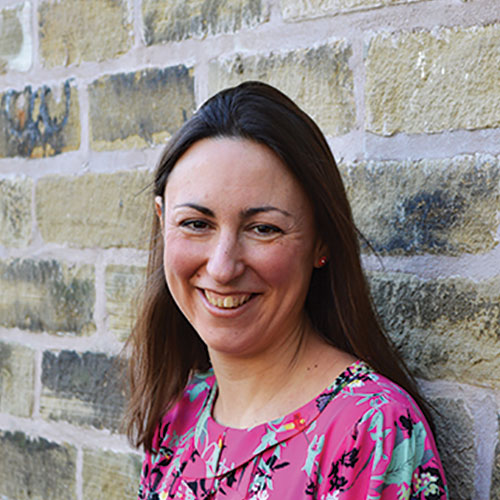
Dr Lisa Russell
Reader, HudCRES
We are living through profound political times. As I process the news that Boris Johnson will remain Prime Minister with a comfortable majority I am prompted to ask what our role as education ethnographers who are concerned with issues of social justice is in the field of politics? I think it is important for us to reflect on how the current political environment informs and shapes what we research, how we research it and perhaps most importantly how we disseminate our findings.
Offering credible sources of information
Telling the truth and ensuring validity and credibility of research findings are key characteristics of any educational research-based scholar working within Higher Education Institutions. Indeed, it is a precondition to enable the academic freedom of philosophical or democratic values in terms of telling the truth via moral qualities toward the intervening power in the process of knowledge production and dissemination through our research, publications and teachings (Giroux, 2002). There is a growing concern amongst education scholars that in our growing knowledge-based economy of neoliberal society, these scholarly philosophical values have been challenged and even shaped by the political and economic interests of government agendas they often seek to challenge (Gaus, 2019).
Promoting critical thinking
Brabazon, Redhead and Chivaura (2019) in their book Trump Studies state that we as education scholars (as well as teachers) have a role to play to promote critical thinking, challenge our students and offer guidance on how to navigate different information sources’ credibility. They argue that ‘scholars require new, radical, edgy, and passionate methodologies, epistemologies, and ontologies to engage with this social, cultural, economic and intellectual maelstrom’ that involve participant observations (Brabazon et al, 2019, p. 18). Through the work of Stuart Hall (2017) they demonstrate that in current political and media discourse, people who hold knowledge are seen as a direct threat to hegemonic ideologies.
Universities are one of the few remaining spaces where scholars gather to discuss, analyse and critique ideas.
They state, ‘with investigative journalism and community activists disappearing from our media and streets, it is left to the scholars in the humanities to create space for alternative ideas, views and arguments’ (Brabazon et al, 2019, p. 164). While one may view the current political state of affairs as promoting a further need to add context, intellect and ‘put a face’ to the disadvantaged in our society, this need is situated within a backdrop, whereby education scholars and education-based ethnographers must compete with lab-based and clinical sciences for funding in an era where statistics, numbers and impact matter and increased ethical regulation over what we can and cannot do is upon us (Russell and Barley, 2019).
Being better communicators
We, as academics, have to engage better and smarter, yet maintain accuracy and credibility to get our findings heard in academic and perhaps more crucially other wider communicative spaces. We have to actively blur the lines, nuancing complex extremes to fight against perpetuating dichotomous narratives that simplify complex relationships between ‘us’ and ‘them’; the ‘employed’ and ‘unemployed’; the ‘haves’ and ‘have nots’; the ‘left wing’ and the ‘right wing’.
We must continue to shed light on the social injustices our society now faces and ethnography can act as a powerful tool to enable this (Barley and Russell, 2019).
Writing ethnography – a political act
It has long been acknowledged that how ethnographic texts are constructed in the field and then morphed in to publication outputs has a political power attached to it. The seminal book Writing Culture: The Poetics and Politics of Ethnography, edited by Clifford and Marcus (1986) acknowledged that ‘enduring power inequalities had clearly constrained ethnographic practice’ (Clifford and Marcus, 1986; p8), leading Coffey to surmise that writing is essentially a ‘political act of meaning construction’ (Coffey, 1999; p290).
What we write matters, how we conduct ourselves in the field and represent those we come into contact with is of huge importance, especially when the ethnographer works in the area of social justice.
When working with the marginalised, power differentials in the field are amplified. If the ethnographer is trying to truly ‘do’ social justice (rather than simply write about it), how one represents oneself and the participants’ cultural practices within and beyond the field should be taken seriously. How data in the field is collected effects relations the ethnographer is able to foster and ultimately informs how the ethnographer presents the ethnography and related organisations and participants (and themselves) to the outside (Russell, 2018).
And so ...
Ethnographers have long operated at grassroot levels trying to understand different cultures and identities from the perspectives of the ‘hidden’ (see for example Simmons, Thompson and Russell, 2014). Ethnography, via its intensive, intimate and longitudinal nature offers a powerful tool to reveal the marginalised and disempowered positions that many within our society currently experience.
Higher Education Institutions offer important sites that can challenge and indeed reproduce societal inequalities and so are arguably instrumental to societal change and/or act as a powerful structure to perpetuate the maintenance of the status quo. Education and research are valuable and their integrity must be maintained. We must act as agents of credibility and change within the education and research spaces in which we operate and acknowledge the role politics play in the work that we do.

